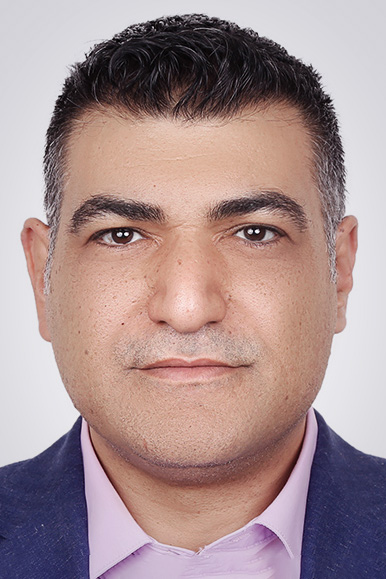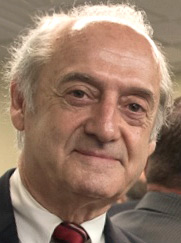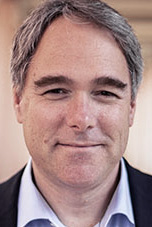

 Wednesday was the open public consultation preparing for the second meeting of the Internet Governance Forum, which will take place in Rio de Janaeiro on 12th-15th November. Although the inaugural Athens meeting was widely deemed a success, having largely stayed off the dread topics of wresting control of DNS from ICANN and IP addressing from the RIRs, the usual suspects were back demanding that these topics be added to the agenda. more
Wednesday was the open public consultation preparing for the second meeting of the Internet Governance Forum, which will take place in Rio de Janaeiro on 12th-15th November. Although the inaugural Athens meeting was widely deemed a success, having largely stayed off the dread topics of wresting control of DNS from ICANN and IP addressing from the RIRs, the usual suspects were back demanding that these topics be added to the agenda. more
 Companies sensible to effective delivery of email to all free email services may have noticed problems with deliveries to Hotmail addresses. Despite the SMTP dialog ending with a successful "250" return code, recipients don't see the message. In their Guidelines, MSN require thorough compliance with IETF standards. However, it seems they have their own interpretation about provisions for Delivery Status Notifications, a.k.a. bounces, that servers must send after they have accepted responsibility for delivering the message... more
Companies sensible to effective delivery of email to all free email services may have noticed problems with deliveries to Hotmail addresses. Despite the SMTP dialog ending with a successful "250" return code, recipients don't see the message. In their Guidelines, MSN require thorough compliance with IETF standards. However, it seems they have their own interpretation about provisions for Delivery Status Notifications, a.k.a. bounces, that servers must send after they have accepted responsibility for delivering the message... more
 While I was in LA last week John sent me details of the Communications Regulation (Amendment) Bill 2007. While there are some potentially positive aspects in the Bill some of the Bill's contents are, for lack of better word, simply crazy... more
While I was in LA last week John sent me details of the Communications Regulation (Amendment) Bill 2007. While there are some potentially positive aspects in the Bill some of the Bill's contents are, for lack of better word, simply crazy... more
 What would duopoly providers of internet access really like to have? They'd really like to be paid for providing non-commodity services. They'd really like to be rewarded for running the network, top to bottom. "But that's not possible," you say. No provider can tell one packet from another. Providers can only block the ports used by applications they don't like, and that's a clumsy, unwinnable arms race. The applications can always switch to common and useful ports, and no provider wants to alienate its subscriber base. But what if providers could inspect the contents of packets, without using too much computational power, and discriminate among applications? "Naah," you say. "They can't possibly do that."... more
What would duopoly providers of internet access really like to have? They'd really like to be paid for providing non-commodity services. They'd really like to be rewarded for running the network, top to bottom. "But that's not possible," you say. No provider can tell one packet from another. Providers can only block the ports used by applications they don't like, and that's a clumsy, unwinnable arms race. The applications can always switch to common and useful ports, and no provider wants to alienate its subscriber base. But what if providers could inspect the contents of packets, without using too much computational power, and discriminate among applications? "Naah," you say. "They can't possibly do that."... more
 The Irish domain registry (IEDR) is to come under the control of the Commission for Communications Regulation ComReg. At present the registry is managed by a "not-for-profit" company, however it has come under increasing criticism with regard to both its management and policies. Although there are approximately 40,000 IE domains currently registered, it is still one of the strictest and most expensive ccTLDs in the world. more
The Irish domain registry (IEDR) is to come under the control of the Commission for Communications Regulation ComReg. At present the registry is managed by a "not-for-profit" company, however it has come under increasing criticism with regard to both its management and policies. Although there are approximately 40,000 IE domains currently registered, it is still one of the strictest and most expensive ccTLDs in the world. more
 Internet governance is shifting from participatory forums to security-driven mandates. As authority accelerates ahead of legitimacy, technical systems face growing instability and operators absorb the risks of politically motivated control. more
Internet governance is shifting from participatory forums to security-driven mandates. As authority accelerates ahead of legitimacy, technical systems face growing instability and operators absorb the risks of politically motivated control. more
 Sometime by year-end, the UN General Assembly (UNGA) will vote on the proposed UN Convention Against Cybercrime. The treaty is opposed by most civil liberties organizations and Internet businesses, although the US position appears uncertain, mostly for reasons of foreign policy. more
Sometime by year-end, the UN General Assembly (UNGA) will vote on the proposed UN Convention Against Cybercrime. The treaty is opposed by most civil liberties organizations and Internet businesses, although the US position appears uncertain, mostly for reasons of foreign policy. more
 In the coming months, we're set to witness the largest investment in America's digital infrastructure in history: $42.5 billion that should be a true lifeline for millions of Americans struggling with slow, unreliable, or nonexistent internet connections. But as with any massive government spending program, the devil is in the details - and Republican lawmakers, led by Texas Senator Ted Cruz, are doing their best to ensure those details work against their own constituents. more
In the coming months, we're set to witness the largest investment in America's digital infrastructure in history: $42.5 billion that should be a true lifeline for millions of Americans struggling with slow, unreliable, or nonexistent internet connections. But as with any massive government spending program, the devil is in the details - and Republican lawmakers, led by Texas Senator Ted Cruz, are doing their best to ensure those details work against their own constituents. more
 Abusive behavior that leverages the domain name system (DNS) continues to be a problem, with a reach that has been widely and credibly documented. There is little doubt that bad actors continue to use the DNS for nefarious and costly purposes. While the amendments made in 2024 to ICANN's Registry Agreement (RA) and Registrar Accreditation Agreement (RAA) were a step in the right direction, more advanced tools are needed to bring abuse rates down. more
Abusive behavior that leverages the domain name system (DNS) continues to be a problem, with a reach that has been widely and credibly documented. There is little doubt that bad actors continue to use the DNS for nefarious and costly purposes. While the amendments made in 2024 to ICANN's Registry Agreement (RA) and Registrar Accreditation Agreement (RAA) were a step in the right direction, more advanced tools are needed to bring abuse rates down. more
 The European Union (EU) has set a high bar by tackling domain name system (DNS) abuse head on via government regulation and seems to have successfully resisted attempts to water down DNS stewardship obligations. Recent guidance from a key European Commission cooperation group (the NIS Cooperation Group) handling sections of the Network and Information Security Directive (NIS2) intends for a robust implementation of Article 28, which will go a long way toward helping to mitigate some of the longstanding problems that persist in the DNS. more
The European Union (EU) has set a high bar by tackling domain name system (DNS) abuse head on via government regulation and seems to have successfully resisted attempts to water down DNS stewardship obligations. Recent guidance from a key European Commission cooperation group (the NIS Cooperation Group) handling sections of the Network and Information Security Directive (NIS2) intends for a robust implementation of Article 28, which will go a long way toward helping to mitigate some of the longstanding problems that persist in the DNS. more
 Do human rights come into the picture when technology and policy work are involved? If so, where? This is a question that has come up multiple times during the last dozen years, and occasionally even before, in Internet Governance discussions. These discussions have included debates on whether human rights were specifically applicable to protocol design or to the organizations developing protocol standards. more
Do human rights come into the picture when technology and policy work are involved? If so, where? This is a question that has come up multiple times during the last dozen years, and occasionally even before, in Internet Governance discussions. These discussions have included debates on whether human rights were specifically applicable to protocol design or to the organizations developing protocol standards. more
 With the strong possibility of a new Netmundial-style event being organized under the stewardship of CGI.br in 2024, the Internet governance community ought to reflect upon the benefits that this could bring to all stakeholders. In a scenario of uncertainty over the several processes affecting the future of the global network, there is value in taking another look at the original event's collaborative outcomes document, which summarized much of what was then understood to be core principles of Internet governance. more
With the strong possibility of a new Netmundial-style event being organized under the stewardship of CGI.br in 2024, the Internet governance community ought to reflect upon the benefits that this could bring to all stakeholders. In a scenario of uncertainty over the several processes affecting the future of the global network, there is value in taking another look at the original event's collaborative outcomes document, which summarized much of what was then understood to be core principles of Internet governance. more
 Phishing attacks have been rising over the past couple of years. Reports show that there was a 345 percent increase in phishing attacks between 2020 and 2021. In 2022, the number of advanced phishing attacks rose by 356 percent. Behind these alarming numbers, however, is an even uglier picture of digital fraud: a difficult-to-quantify prevalence of fake or spoof websites. more
Phishing attacks have been rising over the past couple of years. Reports show that there was a 345 percent increase in phishing attacks between 2020 and 2021. In 2022, the number of advanced phishing attacks rose by 356 percent. Behind these alarming numbers, however, is an even uglier picture of digital fraud: a difficult-to-quantify prevalence of fake or spoof websites. more
 Governments worldwide increasingly resort to shutting down the Internet as a political tool to control information and silence dissent. This alarming trend is not limited to developing nations grappling with civil unrest or political transition. Indeed, it is gaining traction in developed nations, suggesting a global phenomenon transcending geographical boundaries and socio-economic development levels. more
Governments worldwide increasingly resort to shutting down the Internet as a political tool to control information and silence dissent. This alarming trend is not limited to developing nations grappling with civil unrest or political transition. Indeed, it is gaining traction in developed nations, suggesting a global phenomenon transcending geographical boundaries and socio-economic development levels. more
 The original Netmundial was a unique Internet governance event that took place in 2014 and set out to map new avenues for global cooperation around the theme, uniting diverse stakeholders to discuss the future of IG in a broad manner. It was initially convened by the Brazilian government and ICANN as an answer to the Snowden revelations of global Internet espionage performed by various nations (primarily the USA), in part due to these two actors being directly affected by the implications of the revelations. more
The original Netmundial was a unique Internet governance event that took place in 2014 and set out to map new avenues for global cooperation around the theme, uniting diverse stakeholders to discuss the future of IG in a broad manner. It was initially convened by the Brazilian government and ICANN as an answer to the Snowden revelations of global Internet espionage performed by various nations (primarily the USA), in part due to these two actors being directly affected by the implications of the revelations. more